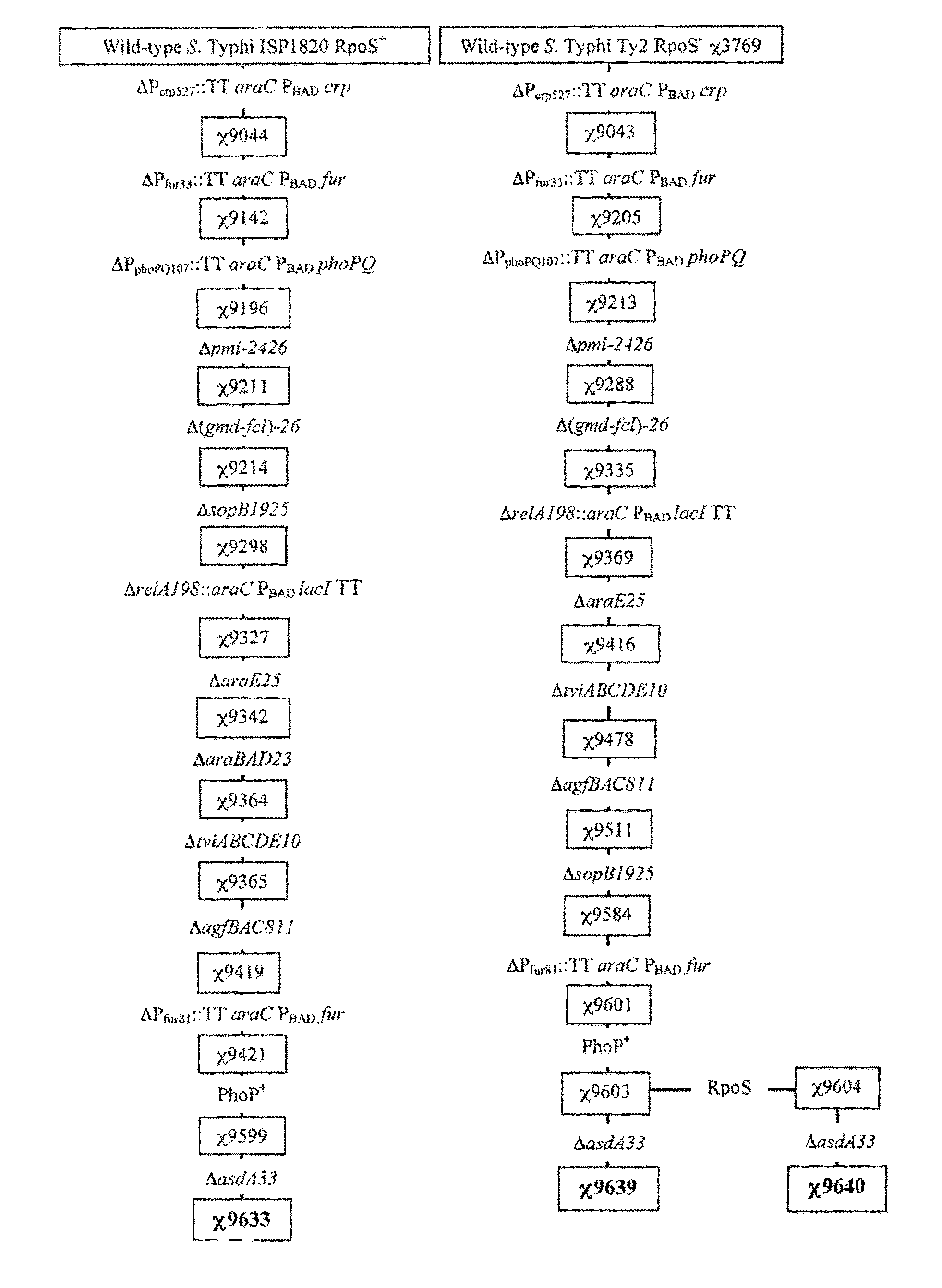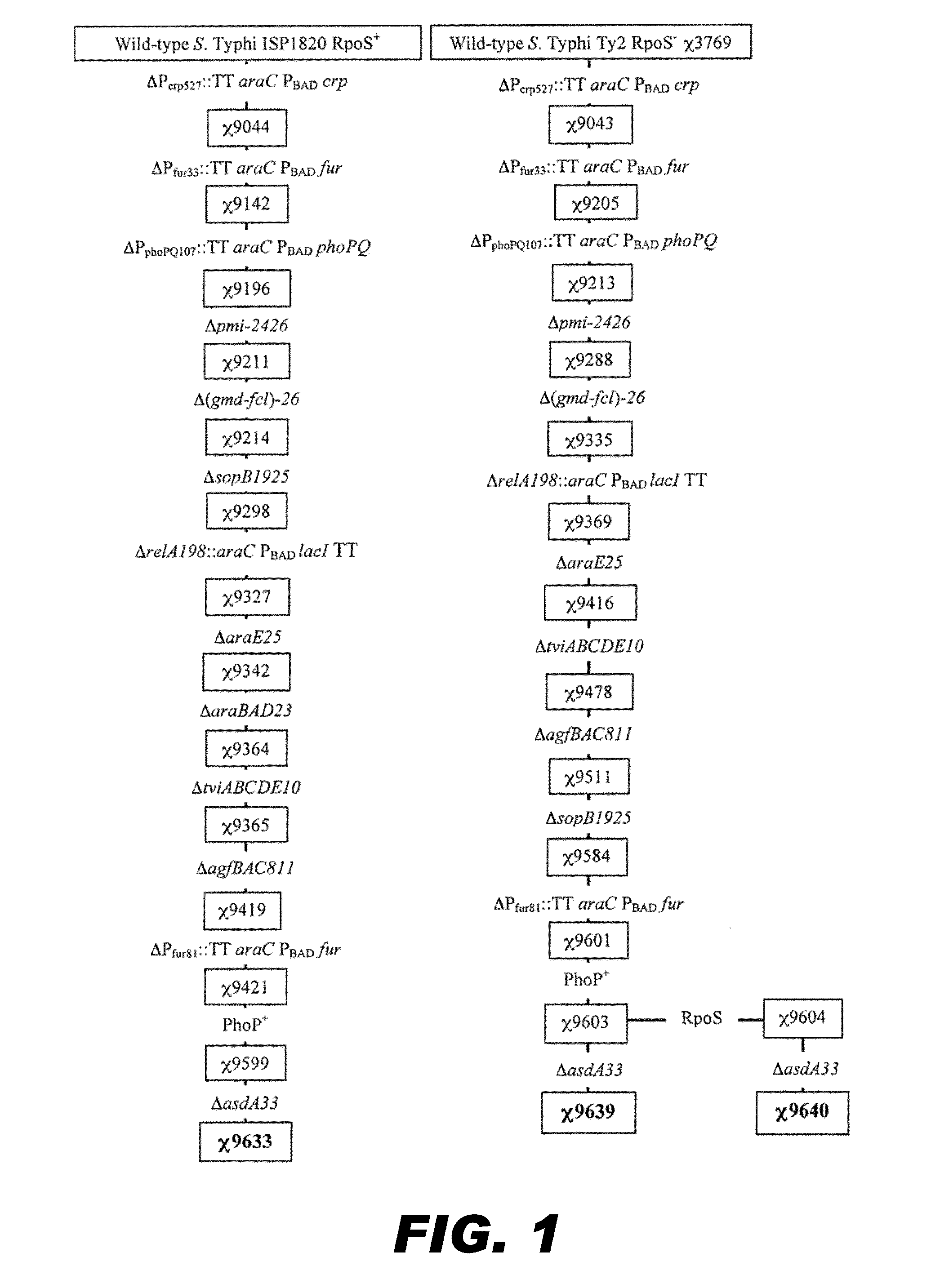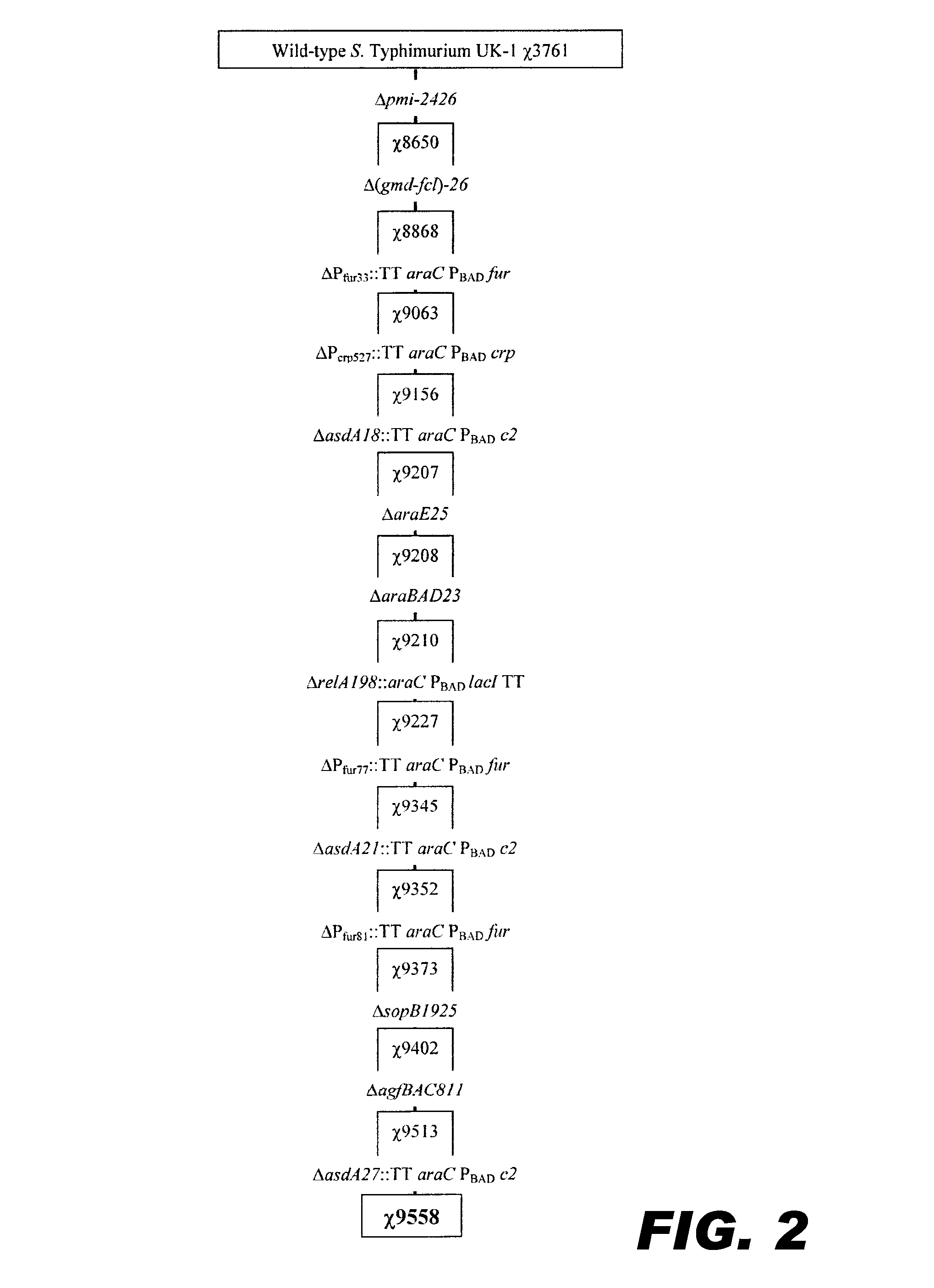Recombinant bacterium capable of eliciting an immune response against Streptococcus pneumoniae
a technology of streptococcus pneumoniae and recombinant bacterium, which is applied in the direction of antibacterial agents, microorganisms, antibacterial ingredients, etc., can solve the problems of high morbidity and mortality, inability to develop an option in the developing world, and inability to elicit an immune response in children
- Summary
- Abstract
- Description
- Claims
- Application Information
AI Technical Summary
Benefits of technology
Problems solved by technology
Method used
Image
Examples
example 1
Salmonella Typhi Vector Construction Description
[0237]Three live recombinant attenuated Salmonella Typhi vaccines (RASV) expressing S. pneumoniae surface protein PspA-Rx1 have been constructed. (see FIG. 1) Two are derived from the S. Typhi Ty2 parent wild type where one of the two vaccine constructs has the restored rpoS gene and is otherwise identical to the original RpoS− Ty2 vaccine derivative. The third vaccine construct is derived from the ISP1820 parent wild type. The three complete RASV are endowed with a plasmid, pYA4088, encoding the S. pneumoniae PspA-Rx1 antigen. PspA-Rx1 is fused to the β-lactamase export system and has been engineered to depend on the Asd+ balanced-lethal system. For comparative purpose, a S. Typhimurium UK-1 was constructed, in parallel of the S. Typhi engineering, to enable safety and immunogenicity studies in the murine model. FIGS. 1 and 2 depict the genealogy of the S. Typhi and S. Typhimurium RASVs. The RASVs genotypic properties are described as...
example 2
Genetic Basis for Fluid Secretion and Means to Reduce Adverse Diarrheal Episodes in Vaccinees
[0261]In studies with live attenuated S. Typhi strains in adults, mild diarrhea is observed in about 10 to 20 percent of volunteers. Since this might be a more common or severe problem in immunizing infants and children, we have evaluated fluid secretion by S. Typhimurium strains with specific mutations, including those to give a regulated delayed attenuation phenotype, using injection of strains into ileal loops of rabbits and measuring inflammatory symptoms histologically and accumulation of fluid. Strains with the ΔsopB1925 mutation exhibit reduced symptoms with only slight attenuation (Table 6) or reduced ability to colonize lymphoid tissues after oral vaccination.
[0262]
TABLE 6Virulence of S. Typhimurium with ΔsopB1925 mutationStrainOral dosage (CFU)Survivors / totalχ89251.2 × 1071 / 5ΔsopB19251.2 × 1062 / 51.2 × 1055 / 51.2 × 1045 / 5
example 3
Impact of Acylation State of Salmonella Lipid A on Vaccine Immunogenicity and Efficacy
[0263]Salmonella lipid A is a mixture of closely related species that contain between 5-7 fatty acid moieties decorated with other small molecules (FIG. 38A). About 15% of Salmonella lipid A is hepta-acylated, while the most abundant species is hexa-acylated as in E. coli (Chan, 1994). The MPL isolated from Salmonella Minnesota R595 is a mixture of 3-6 fatty acid moieties with a single 4′-phosphate group (Baldrick, 2002). Recently it was shown that the acylation state significantly impacts vaccine immunogenicity and efficacy (Rallabhandi, 2008). Salmonella lipid A can be modified by the acyltransferase PagP and / or the deacylases, PagL and LpxR (references and unpublished data). The regulated expression of these genes in vivo could result in lipid A modifications that interfere with TLR4 activation (Raetz, 2007). To evaluate the effect of deleting these genes, in the presence or absence of IpxE, we ...
PUM
| Property | Measurement | Unit |
|---|---|---|
| pH | aaaaa | aaaaa |
| pH | aaaaa | aaaaa |
| pH | aaaaa | aaaaa |
Abstract
Description
Claims
Application Information
 Login to View More
Login to View More - R&D
- Intellectual Property
- Life Sciences
- Materials
- Tech Scout
- Unparalleled Data Quality
- Higher Quality Content
- 60% Fewer Hallucinations
Browse by: Latest US Patents, China's latest patents, Technical Efficacy Thesaurus, Application Domain, Technology Topic, Popular Technical Reports.
© 2025 PatSnap. All rights reserved.Legal|Privacy policy|Modern Slavery Act Transparency Statement|Sitemap|About US| Contact US: help@patsnap.com



